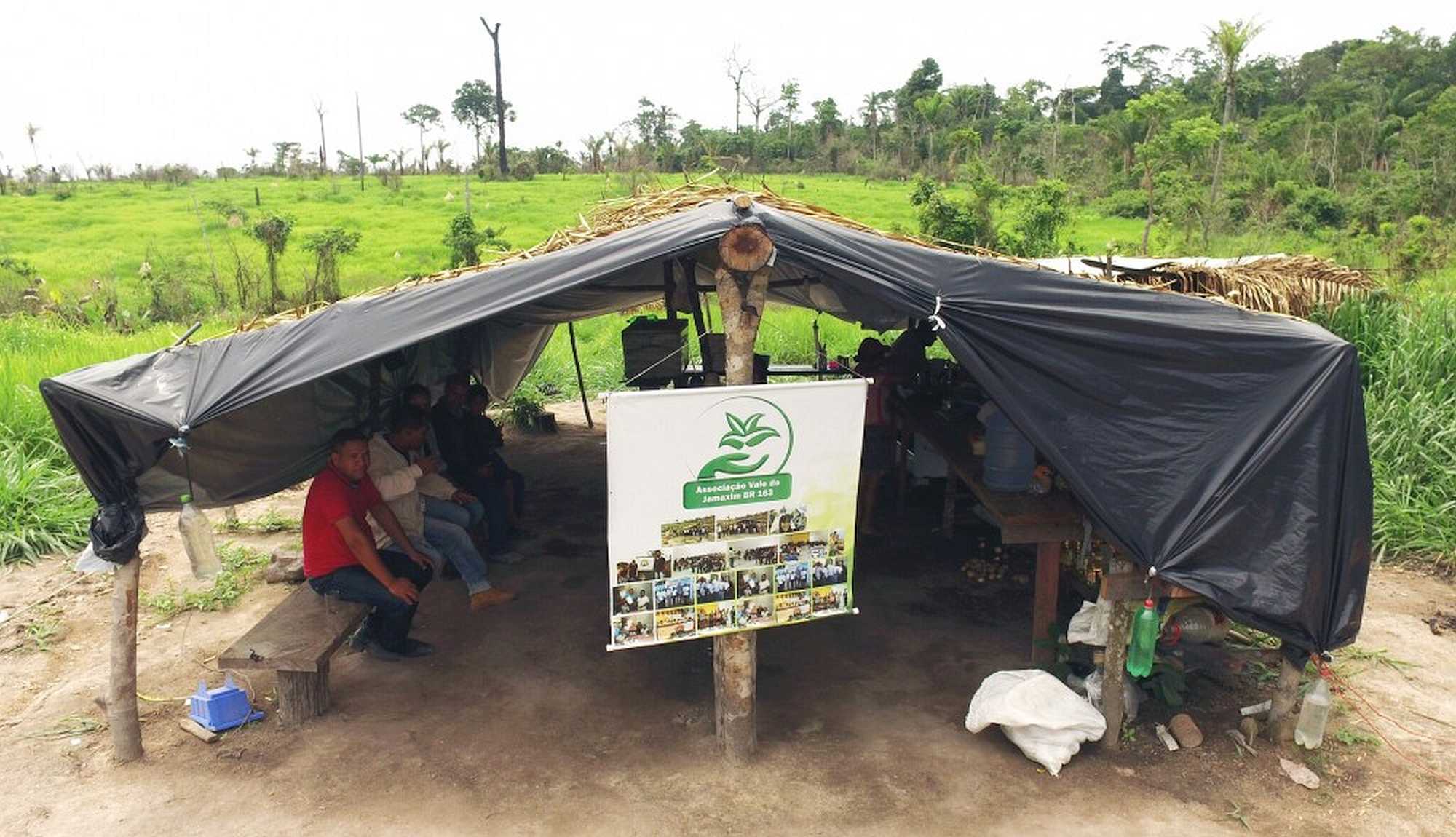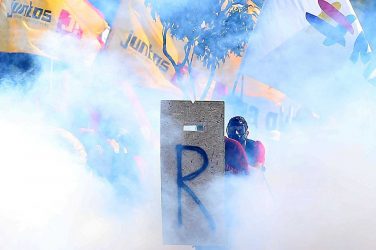Until this week, 80 impoverished families, camped for almost a year under black plastic tents, were hopeful that, despite violent attempts by gunmen to evict them, that they would soon win rights to a piece of land and be able to build a better life for themselves.
The camp, near the BR-163 highway in southwest Pará state, is located in an Amazonian region where violent land conflicts have escalated to very high levels recently, as illegal loggers and land thieves try to intimidate and drive out indigenous communities, traditional populations and peasant families.
When we visited the camp in November 2016, Rodolfo Ávila, a lawyer assisting the peasant movement, said that “INCRA [the National Institute for Colonization and Agrarian Reform] has destined this land for agrarian reform, which is exactly what these families are calling for.”
But on Monday, 19 June, a judge in the city of Santarém in Pará decided in favor of the Junqueira Vilela family – known nationally and internationally to be running a powerful criminal gang that steals land, illegally fells forest and uses slave labor.
The judge gave the encamped families two weeks to vacate.
The court ruling came in response to a judicial action launched in April by Vilela family siblings, Beatriz and Marco Junqueira Vilela, Dorival Pandin and Heládio Cezar Menezes Machado.
Three of the four are directly linked to other members of the Vilela Junqueira family, which was targeted by the Flying Rivers Operation, a federal investigation jointly launched in June 2016 by the Federal Public Ministry (MPF), the environmental agency IBAMA, and the Federal Police.
Marco and Beatriz are the cousins of Antonio José Junqueira Vilela Filho, known as Jotinha, and of Ana Luíza Junqueira Vilela Viacava, both arrested for land theft, the formation of a criminal gang, illegal deforestation and other crimes carried out near the peasant camp.
Heládio Cezar Menezes Machado was accused of “coercive behavior” during the Flying Rivers Operation and partnered with Junqueira Vilela in the building of the Rochedo and Nhandu hydroelectric dams, both closed down after accusations of various illegal acts.
The judicial decision, which was reached without consulting the peasant families, was largely based on documents presented by those bringing the action, documents that include an Environmental Rural Register (CAR) and the Authorization for the Functioning of Rural Activity (AFAR), which the judge accepted as proving ownership.
But Eliane Moreira, Justice Prosecutor in the State of the Pará Public Ministry, argues that “the CAR was never intended as a land ownership tool but as a tool for environmental monitoring.” In other words, the CAR is issued to those claiming ownership and doesn’t in itself prove ownership, while AFARs have not been valid since 2013.
The judge accepted the assurances made by those bringing the action, saying that he was confident that the land being turned over to them would be maintained “in accordance with [Brazil’s] environmental legislation.”
However, according to IBAMA, more than 1,000 hectares (2,470+ acres) in the vicinity have been illegally deforested by Wander José Junqueira Vilela, the father of Marco and Beatriz.
The area in dispute has been divided into lots, none of which exceeds the maximum size permitted by the law. Each lot has a different CAR and, allegedly, a different owner.
However, it is interesting to note that the deforestation carried out by Wander José crosses several properties, clearly suggesting that the partners have used the old Amazonian trick by which a land thief gets other people, known as “laranjas” (oranges), to register the land in their name to circumvent legal restrictions on size.
Another possible indication that those gaining property rights in the case are perhaps not as well intentioned environmentally, and as respectful of the law, as the judge believed is Marco Junqueira Vilela’s profile on Facebook.
While his cousins were under arrest during the Flying Rivers Operation, he had as his Facebook “wallpaper” a satellite image of the forest illegally cleared by his family. The wallpaper was later removed.
Marco possibly believed he was thumbing his nose at law enforcement and other authorities in an amusing fashion, but some Brazilians, who saw the image via social media, viewed the deforestation wallpaper as an arrogant expression by a member of the Brazilian rural elite who believes he can steal public property, do profound damage to it, then get society to condone and reward his action – an arrogance that this week’s judicial ruling seems to demonstrate could be well founded.
We contacted Marco Junqueira Vilela by email with various detailed questions but he did not reply.
The judge’s ruling was only preliminary and the peasants have the right to be heard before the final decision is taken. However, the families have very little money and will find it difficult even to cobble together enough cash for the two-day bus fare to Santarém, let alone pay for a lawyer who can stand up to the legal onslaught that the skilled professionals employed by the Vilela family can unleash.
Moreover, by the time a final hearing would be held, the families will likely have been evicted. There is little doubt that the optimism that reigned in the camp when we visited last November will have been replaced this week by despair.
This article appeared originally in Mongabay – https://news.mongabay.com













